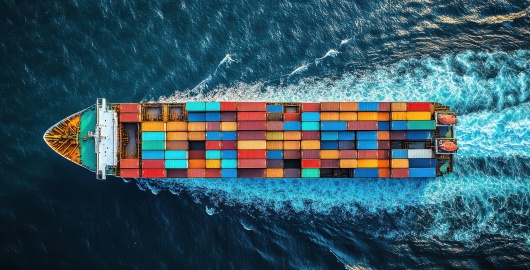New WEF report explores the future of global value chains

A new report from the World Economic Forum’s Council on Advanced Manufacturing Value Chains, co-Chaired by Jagjit Srai, Director of Research at the Department of Engineering and Head of the Centre for International Manufacturing at the IfM, has been published.
Drawing on extensive C-suite executive engagement and inputs, From Shock to Strategy: Building Value Chains for the Next 30 Years – developed by the Global Future Council on Advanced Manufacturing and Value Chains – identifies and investigates the eight key forces reshaping global manufacturing over the next three decades.
The white paper presents a strategic framework across three critical time horizons – 2030, 2040 and 2050 – offering manufacturers a roadmap for building resilience while maintaining competitiveness in an increasingly complex global environment.
“Once a landscape dominated by the principles of globalisation, industry now finds itself shifting towards strategies of regionalisation and dual sourcing. As headlines highlight geostrategic competitive moves and regional conflicts, threats of cybersecurity and intensifying climate events, decision-makers are navigating an increasingly complex operational environment where strategic agility and resilience have become non-negotiable foundations of competitiveness,” says Jag, the Council’s Co-Chair.
“We hope that the driving forces and scenarios outlined in this paper can help public- and private-sector stakeholders inform decision-making processes and identify appropriate strategies and policies to ensure that the manufacturing sector delivers responsible growth.”
The Global Future Council on Advanced Manufacturing and Value Chains is a think tank comprising industry experts, leading academics, civil society and public officials that aims to create potential scenarios to guide manufacturers’ decision-making processes.
The IfM is proud to support this work, which aligns closely with its mission to build more effective and sustainable industrial systems through strategic research and innovation. We will be discussing the implications of this work and the challenges of a new harsh geo-strategic competition at our Annual Cambridge International Manufacturing Symposium on the 25th-26th September.









